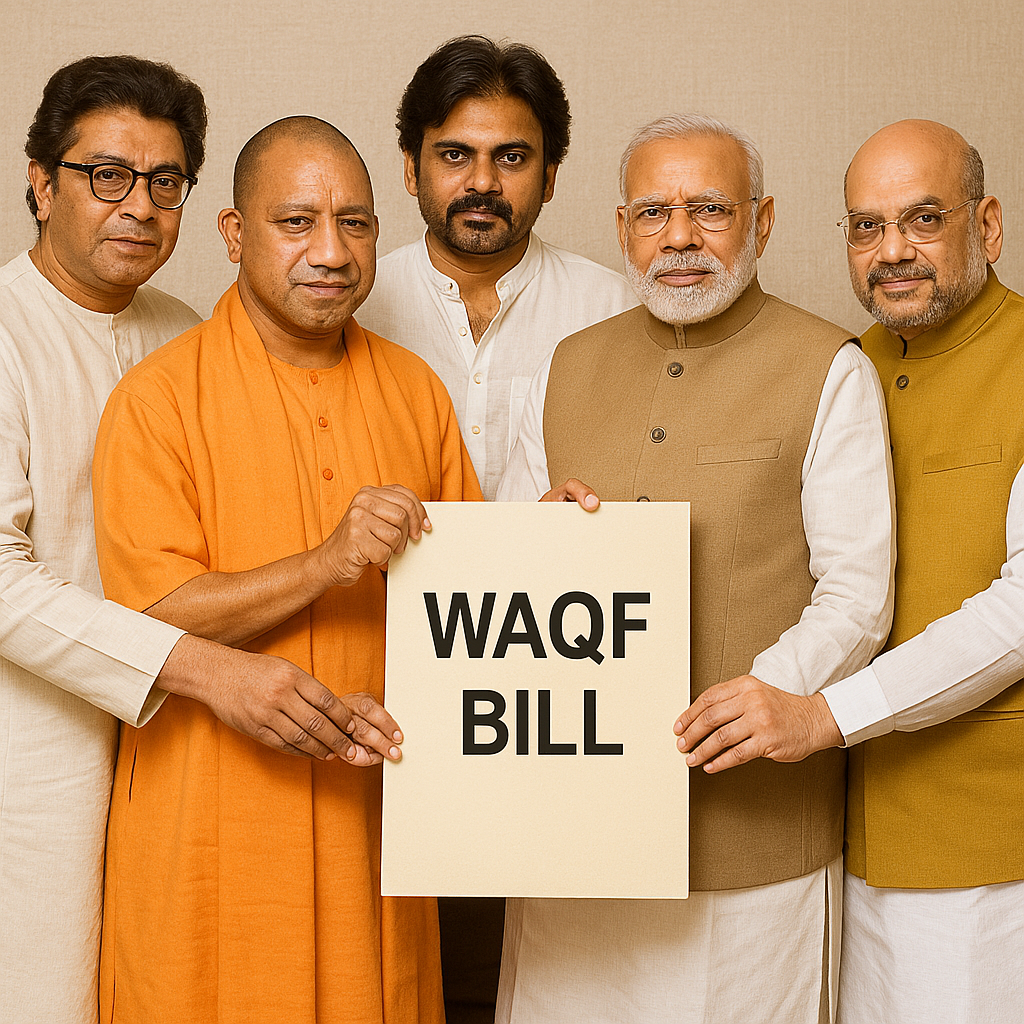After Effects of Waqf Bill in India 2025
The Waqf (Amendment) Bill 2025, passed by the Indian Parliament on April 3, 2025, has become a topic of intense discussion across the nation. This legislation, which reforms the Waqf Act of 1995, aims
The Waqf (Amendment) Bill 2025, passed by the Indian Parliament on April 3, 2025, has become a topic of intense discussion across the nation. This legislation, which reforms the Waqf Act of 1995, aims

The Waqf (Amendment) Bill 2025, passed by the Indian Parliament on April 3, 2025, has become a topic of intense discussion across the nation. This legislation, which reforms the Waqf Act of 1995, aims to improve the management of Waqf properties—lands or assets donated by Muslims for religious, charitable, or community purposes. Waqf properties have been a vital part of Islamic philanthropy in India, supporting mosques, schools, orphanages, and other community initiatives. However, the new amendments have introduced significant changes, sparking both support and criticism. In this article, we’ll dive into the after-effects of the Waqf Bill in India, exploring its impact on governance, the Muslim community, and social harmony in a way that’s easy for everyone to understand.
The Waqf (Amendment) Bill 2025, also known as the Unified Waqf Management, Empowerment, Efficiency, and Development (UMEED) Act, was introduced to modernize the administration of Waqf properties. India has over 870,000 Waqf properties, spanning approximately 940,000 acres of land, making Waqf boards the third-largest property holders in the country after the Indian Railways and the Armed Forces. These properties, valued at over ₹100,000 crore, are meant to serve the community by funding religious and charitable activities.
The bill was passed after heated debates in both houses of Parliament, with 288 votes in favor and 232 against in the Lok Sabha, and 128 votes in favor and 95 against in the Rajya Sabha. The amendments address long-standing issues like mismanagement, corruption, illegal land occupation, and disputes over property ownership. Key changes include mandatory digital registration of all Waqf properties, the inclusion of non-Muslims in Waqf boards, and the removal of the "Waqf by user" provision for future claims, which previously allowed properties to be recognized as Waqf based on long-term use.
The Waqf (Amendment) Bill 2025 has been praised by its supporters for bringing much-needed reforms to Waqf property management. Here are some of the positive outcomes that have started to emerge:
While the bill has its benefits, it has also faced significant criticism, particularly from Muslim organizations and opposition parties. Here are some of the challenges and concerns that have arisen:
The Waqf (Amendment) Bill 2025 has had a mixed impact on the Muslim community in India. On one hand, the reforms have the potential to improve the management of Waqf properties, ensuring that their benefits reach the community more effectively. For instance, better-managed Waqf assets could lead to more funding for schools, hospitals, and orphanages, directly benefiting underprivileged Muslims.
On the other hand, the bill has created a sense of unease among many Muslims, who feel that their religious rights are being encroached upon. The inclusion of non-Muslims in Waqf boards and the increased government oversight have been seen by some as an attempt to dilute the community’s control over its own institutions. This sentiment has been particularly strong in states like Uttar Pradesh and West Bengal, where Muslim organizations have held rallies to demand the bill’s repeal.
In the long term, the Waqf (Amendment) Bill 2025 could reshape the governance of Waqf properties in India. If implemented effectively, the reforms could set a precedent for transparent management of religious endowments, potentially inspiring similar changes in other sectors. The digital portal, for example, could become a model for managing other types of charitable trusts, ensuring accountability across the board.
However, the bill’s success will depend on how the government addresses the concerns of the Muslim community and ensures that the reforms are implemented fairly. If the perception of bias or overreach persists, it could deepen mistrust between communities, affecting social harmony. To avoid this, the government will need to engage with community leaders, provide support for smaller Waqf boards, and ensure that the bill’s provisions are not misused.
For communities affected by the Waqf Bill, adaptation will be key. Here are a few steps that can help:
The Waqf (Amendment) Bill 2025 is a landmark piece of legislation that has the potential to transform the management of Waqf properties in India. While it brings much-needed transparency and efficiency, it also raises valid concerns about religious autonomy and social harmony. As India moves forward in 2025, the government, Waqf boards, and communities will need to work together to ensure that the bill’s benefits are realized without compromising the rights and sentiments of the Muslim community. By striking a balance between reform and respect for tradition, the Waqf Bill can pave the way for a more inclusive and equitable future.
Writer and content creator
Log in to share your thoughts and engage with other readers.